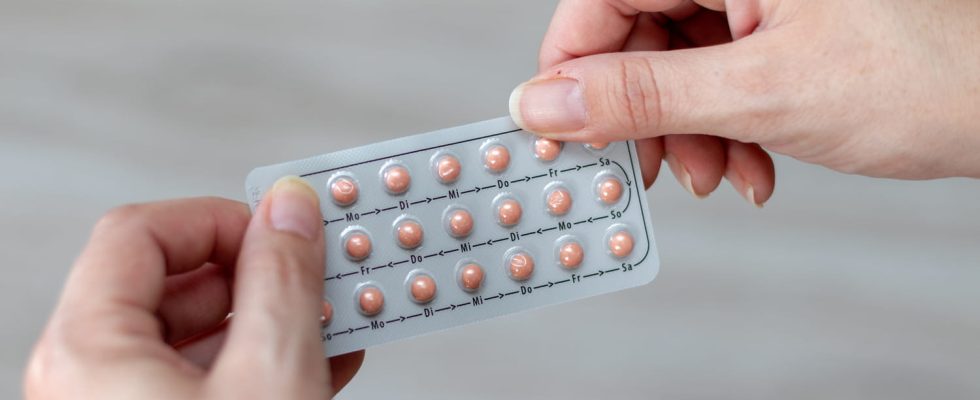Fear of becoming infertile, of gaining weight, of having pain or heavier periods… There are many obstacles to taking the pill or inserting an IUD. Let’s sort out the truth from the fiction with our gynecologist.
39% of premenopausal women do not use contraceptionaccording to the results of the study* “French women and contraception” conducted by the CCD laboratory. Among the obstacles to using contraception, 19% of them say they are afraid of side effects on their health. “Women’s view of contraception is still influenced by some preconceived ideas that disrupt their ability to make the right decisions for themselves. This relative lack of knowledge is the result of a combination of factors combining both discussions on social networks and certainties based on persistent but often biased beliefs.“, specifies Dr. Thierry Harvey, obstetrician-gynecologist.
1. The pill makes you sterile
“We row against urban legends and fake news, regrets Dr. Thierry Harvey. After 10, 15 or 20 years of taking the pill, the ovaries continue to function and the contraceptive effect of the pill is completely reversible ! No study has proven that the pill could reduce fertility. On the other hand, we know that fertility declines with age, which explains why some women sometimes have difficulty conceiving..” After stopping the pill, the resumption of a normal cycle varies depending on the woman. There may be delays in ovulation of a few weeks to a few months, but this remains rare and irreversible.
2. The pill makes you gain weight
“It is not systematic and it depends on the pills. Certain pills with a high dose of estrogen can promote water retention, fat storage and cause a slight weight gain of 1 to 2 kg“, explains the gynecologist. Again, it depends on the women because they metabolize the hormones in the pill differently. After a while, the body gets used to this hormonal change and the weight stabilizes.
3. You are less likely to get pregnant if you have worn an IUD
More than 8 out of 10 women have already used the contraceptive pill. On the other hand, only 30% have already used a copper intrauterine device and 19% a hormonal intrauterine device. But why are these contraceptive methods used so little compared to the pill and why are women reluctant? Some preconceived ideas persist about the IUD. “It has long been thought that improper IUD insertion favors genital infections and inflammation of the tubes which, if left untreated, could lead to sterility. Many professionals refuse to insert an IUD in nulliparous women, but nothing prevents the insertion of an IUD in these women“, explains the specialist. Furthermore, “we must ban the term “IUD” from our vocabulary at all costs because the IUD absolutely does not make you sterile : the return to fertility is the same after removal of an IUD. Finally, the IUD does not increase the risk of infection compared to another contraceptive“.
4. Inserting an IUD hurts
“Yes, inserting an IUD can hurt a little, but the pain – which is similar to a small cramp in the stomach – is brief and not very intense. If the pain persists, do not hesitate to consult a doctor“, recommends our interlocutor. Generally, the insertion of an IUD is carried out during the period because the cervix is more permeable. Please note that it is also possible to be prescribed a painkiller to relax your cervix before the intervention.
5. Periods are heavier with an IUD
“If the woman already has heavy periods without contraception, inserting a copper IUD can slightly increase its flow. On the other hand, the insertion of a hormonal IUD often has the opposite effect and tends to suppress periods.“, explains the gynecologist.
Other obstacles to contraception
Among premenopausal women who do not wish to use contraception, there are those who have not no sex with a man (43%), those who want to get pregnant (12%), those who had use of permanent contraception such as tubal ligation (8%), those who cannot have children or whose spouse is infertile (5%) and those who do not use contraception for religious reasons (3%).
*Source : Study “French women and contraception: OpinionWay survey for the CCD Laboratory”on a sample of 1,003 women representative of the French population aged 15 and over and constituted according to the quota method (criteria of age, socio-professional category, urban area and region of residence). The interviews were conducted from August 19 to 23, 2019.
